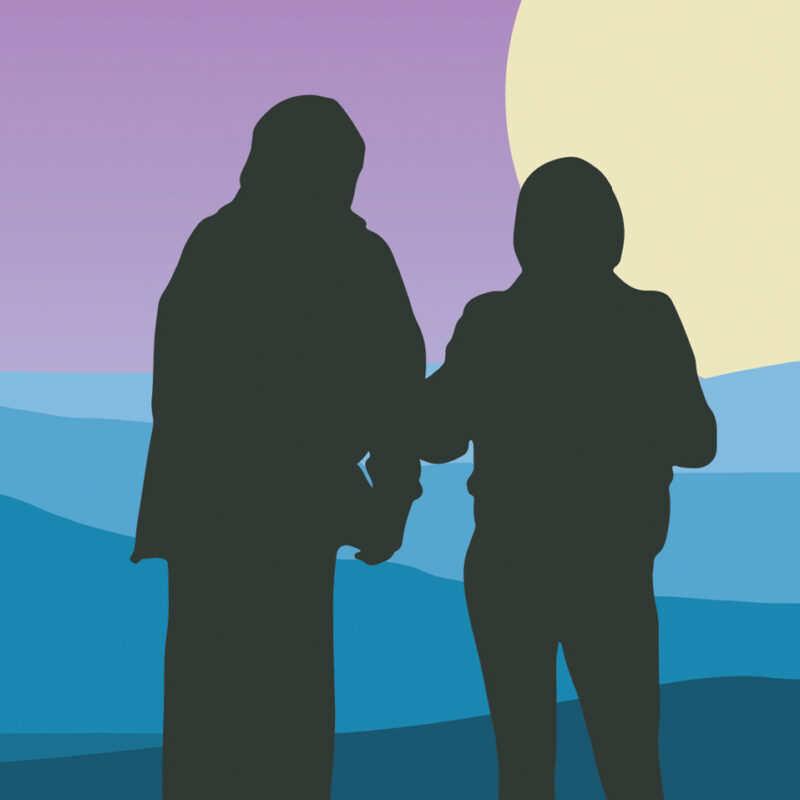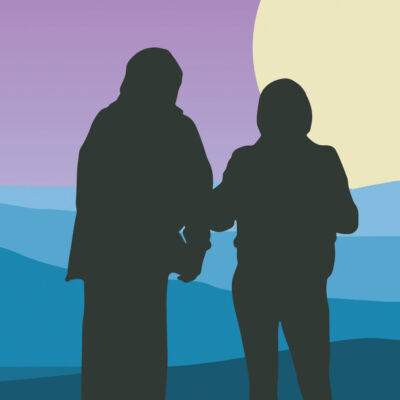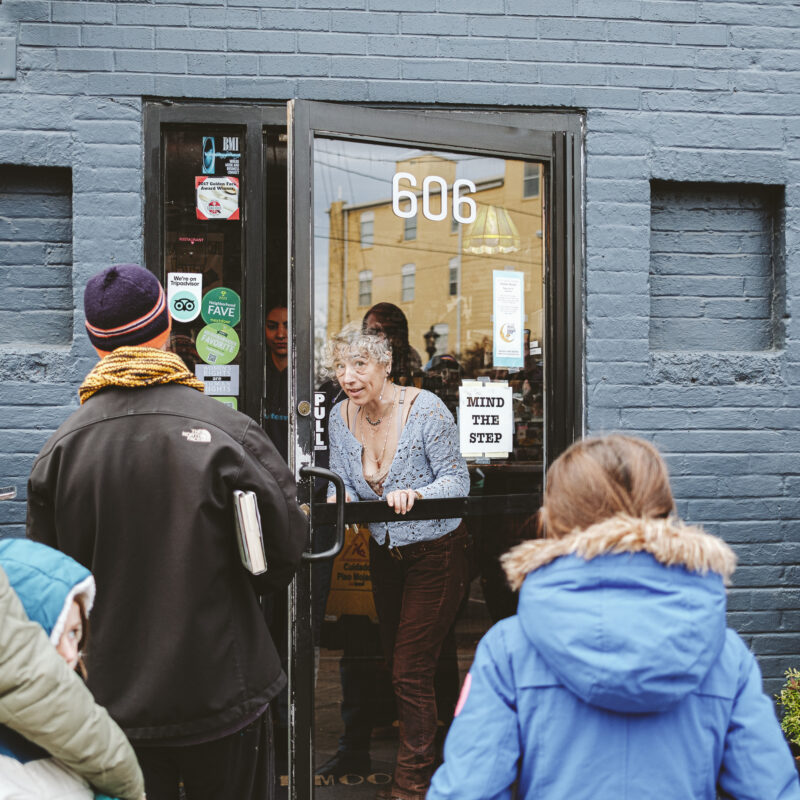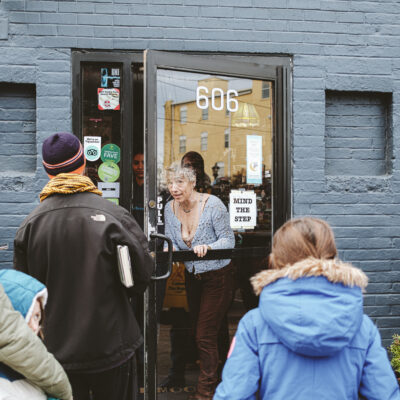Chet’la Sebree is the author of Blue Opening, a poetry collection published earlier this month, as well as Field Study, winner of the 2020 James Laughlin Award from the Academy of American Poets, and other work. She is an assistant professor at George Washington University and teaches in Randolph College’s low-residency MFA program. She spoke to C-VILLE about her new book, its themes of chronic illness and the body, and what it’s like to care for self and others in this moment.
C-VILLE: A major theme in the book is illness and I’m hoping you can talk about the process of writing about your own health. How did it feel putting words to that?
Chet’la Sebree: When I was writing these poems, I thought I was processing my own things and I didn’t know if these were going to be poems that I’d share with the world. But it became increasingly important for me as I was negotiating all of the threads of the manuscript. I’m talking about a lot of origins and where things begin in illness. … It felt liberating to no longer pretend I don’t have invisible disabilities. But it was a challenge. As I started to think of them as poems that would live in the world, I felt like they were for other people to feel less alone and be more present in themselves as well.
Was there any particular poem or theme that was especially challenging?
The newest poem in the book is “Five Facts About Lupus,” and I think I wanted to write a poem about lupus but wasn’t really sure where to start. There’s a poem by Shara McCallum called, “Ten Things You Might Like to Know About Madwoman,” and I was like, “Oh, this is a way in which the madwoman is talking about herself but also not talking about herself. So, if I try to come up with five facts about lupus that aren’t really about lupus, how can I engage with it?” It was a difficult poem to conceptualize but that framework made it a little easier to access.
Thinking about the place of your book in our current public health ecosystem, where infrastructure is actively being dismantled, I’m curious how you hope your work is received?
“Screw the system” is the politest way I can say that. I’ve been frustrated with the state of health care here in the United States. As a chronically ill Black woman, I feel that the system is not here to serve me. I guess maybe I’m thinking about the other people who find themselves in similar circumstances … I hope that they can read this book and … feel a bit supported, a bit buoyed. But also, there’s a way in which people have actively said to me, unprompted, “You just seem like the peak of healthiness.” That’s always so hard to hear. I hope that people in the medical industry, insurance companies, or public health officials who don’t necessarily believe the realities of what it is to live in a body, see more clearly how some of us negotiate the world.
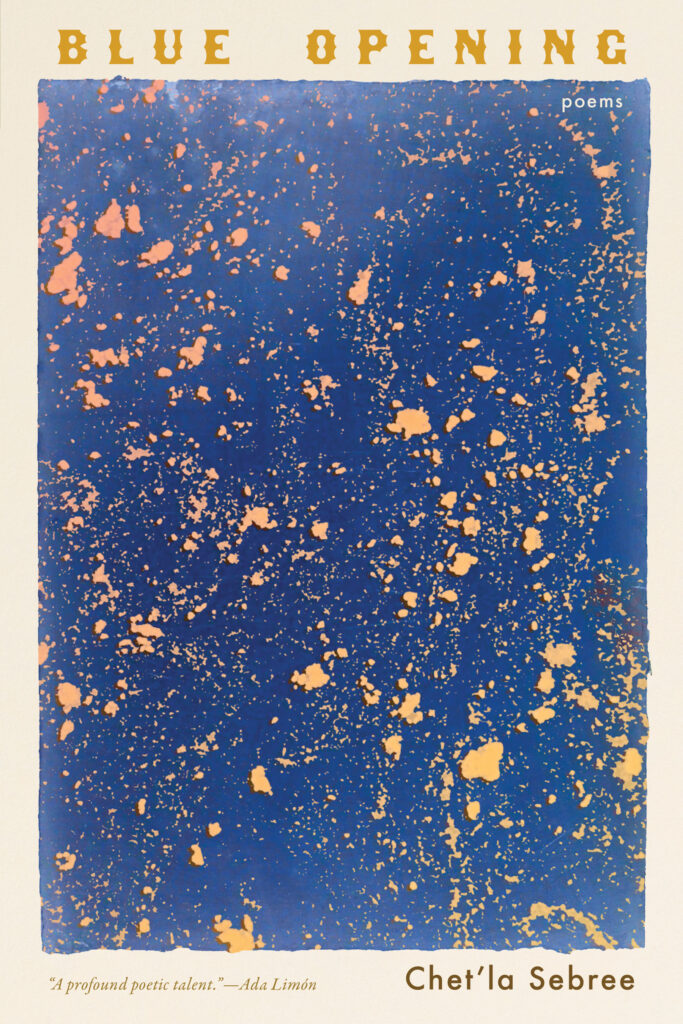
Describe how you decided what to name the book.
I went back and forth for a really long time. Blue Opening … comes from a poem [in the book] where someone is jumping off of a cliff into water and it’s about that moment when your body hits the water and you’re both in the air and in the water. The last line is, “…cold slap of blue opening as the invisible spits me out.” And it felt like the book was about being in that liminal space where the water opens beneath you.
Your next book is prose. Describe how your process is different when writing essays.
I started writing essays in response to George Floyd’s murder. At the time, I was working on Field Study, which blurs the line between poetry and nonfiction, but it was talking about a Black woman and the fallout from her relationship with a white man. I felt so frustrated in summer 2020 as I was editing and finalizing that book. … The essay started as a reconciliation for myself. The container of the poem is so beautiful in its capacity to be concise, but I wanted to say much more and I didn’t want to hold myself back and make myself small. Not to say that the poem is small, but I, as a queer Black woman writer, wanted to take up more space.
What does care look like for you these days?
I take a lot of baths. It’s a huge part of my care strategy. One, because my joints need it, and two, I love the ocean and big bodies of water. It really settles my spirit and I don’t live near a big body of water so I have to take a lot of baths to give myself the ocean vibes. It’s also about having to be intentional about taking time away from work. I’m a workaholic so it’s hard for me, but I’m trying to get better at it.
And in terms of my community, it’s really showing up and being present. I just feel like time is so precious and we spend so much of it working and doomscrolling. I just want to be close to the people I love and make sure they know that I love them.



